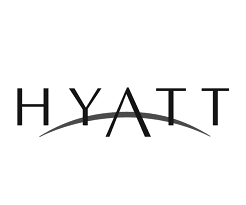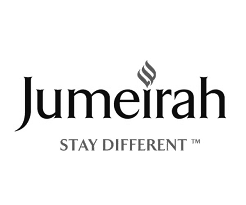What is managed IT support for hotels? FAQs for hotel operators
Independent hotels often don’t have a full in-house IT team, leaving them juggling outages and downtime by themselves. And as tech becomes more complex and fast-moving, it’s harder to keep on top of upgrades and essential maintenance.
Outdated systems aren’t just vulnerable to cyber attacks, they can also frustrate guests and hold businesses back from taking advantage of the latest automations and efficiency-driving features.
Which is why many operators turn to providers who can offer managed support.
In today’s post we’re answering some of the questions we hear most about what managed IT support is, and how to choose the right provider.
Key takeaways
- – Managed IT support is proactive and focused on preventing, not just fixing, issues.
- – Generalist IT providers often don’t understand hotel-specific challenges.
- – Picking the right partner starts with their hospitality experience.
- – Pricing calculations need to factor in the cost of downtime.
- – Many hotels switch providers when they’re expanding or renovating.
- – IT migration needn’t be complex or disruptive.
What exactly is managed IT support for hotels?
What sets managed support apart is the emphasis on prevention rather than break-fix services. Instead of a provider who simply installs your tech and walks away, a managed IT provider takes responsibility for maintaining, monitoring, and troubleshooting your hotel’s systems.
They proactively respond to issues before they impact your guests, and make sure your staff aren’t wasting time fire-fighting problems like Wi-Fi downtime, faulty security cameras, or slow payment processing.
They will also advise you on initial setups, integrations, and installations as you bring on new properties or upgrade your portfolio.
Why can’t I just use a general business IT provider for my hospitality tech?
This is a corner that’s just not worth cutting. Hotels have unique needs that general providers often don’t understand, like:
- – Integrating multiple complex systems
- – Ensuring guest Wi-Fi never fails
- – Maintaining compliance for sensitive data
- – Managing the constant flow of personal devices connecting to your network
- – Supporting AI-driven personalisation and preference tracking
- – Enabling smart rooms (e.g., voice-controlled lighting, sleep environment controls), IoT integration (for predictive maintenance and guest comfort), and virtual concierges
Choose a hospitality-focused provider who understands these pressures and can design solutions around your day-to-day realities. Like our client who needed staff to be able to stay logged in to their Wi-Fi network even when travelling between two hotel sites. Or the hotel that carries out all check-ins with mobile devices instead of at a traditional reception desk.

There are so many IT providers our there! How do I choose the right partner?
Start with their hospitality experience. Do they understand your world? Can they deliver solutions that don’t disrupt guest service or create workflow bottlenecks?
Find out if they offer proactive monitoring – you want a provider who spots potential issues before they turn into guest-facing problems. Ask them about their response times and whether they offer 24/7 support that matches your always-on operating hours.
Check how they tackle data security. They need to fully understand compliance and have strong cyber security measures in place. With cyber attacks increasing in scope, sophistication, and impact, the stakes are high. The gold standard is for your provider to have ISO27001 accreditation or be an NCS-recognised Cyber Advisor. Look for experience deploying infrastructure that supports advanced technologies like mobile check-ins, digital room keys, and biometric authentication.
How much does managed IT support cost?
Pricing will vary depending on your hotel size, systems, and service level requirements. Consider the total cost picture – while managed IT support is a monthly investment, it usually costs less than hiring full-time staff, dealing with emergency repairs, or being hit with fines for data breaches.
Factor in the cost of downtime, too. Losing bookings for just half your typical weekend’s occupancy could cost thousands in lost revenue – far more than the month’s IT support. And then there’s the hidden cost of bad reviews and reputational damage.
When should I consider switching providers?
If your systems are crashing, you’re struggling to find reliable local engineers, you’re worried about cyber security, or you’re planning major tech upgrades, it could be time to find a new hospitality technology partner.
Many hotels also switch when they’re planning expansion or renovations, and their existing partner doesn’t have the capability or expertise. It’s often easier to bring on a new provider at the initial stages of a build or project, so every detail is factored in from the start.
An IT migration will disrupt my hotel and guests
Continuity is crucial, and interruptions aren’t inevitable. A top-notch provider will do a complete audit of your current systems before any IT migration or upgrade, documenting hardware age and software versions as well as network configurations and security settings.
Then they’ll build a transition plan that minimises disruption. This might mean scheduling changes for low-occupancy seasons or building backup plans.
They should also train your staff on new processes or interfaces so they’re confident in delivering continued great service.
How do I know if my current IT setup needs an upgrade?
Warning signs include:
- – Regular system crashes
- – Slow performance during busy periods
- – Compatibility issues between different software platforms
- – Security vulnerabilities that patches can’t fix
- – Guest complaints about the Wi-Fi
Systems more than 5-7 years old? They’re probably due an upgrade. Hospitality tech moves fast and older systems can hold you back, stopping you take advantage of new features that could improve guest experience or efficiency.
What questions should I ask potential providers?
These are our non-negotiable things to ask:
- – How many hotels do you support?
- – Have you got references from similar properties?
- – Do you offer 24/7 support and monitoring?
- – What’s your average response time for urgent issues?
- – How do you handle out-of-hours emergencies?
- – How do you schedule maintenance and upgrades?
- – How do you protect guest data and ensure compliance?
Getting started with managed IT support
Luxury hospitality is increasingly about personalisation, whether that’s customised in-room entertainment preferences and climate settings, or recommendations of places to visit. But hotel operators are also keen to keep the human touch guests want.
When choosing your hospitality technology provider, make sure they can deliver IT systems that support these two crucial elements of five-star service: keeping systems running is essential, but it’s also about helping you provide the best possible guest experience.
If you’re speaking to potential providers and they don’t ask about your operational challenges, that’s a red flag. The right provider makes sure your tech works for you, instead of being just another expense.
Got more questions about what’s working, and what’s not? Talk to our team.









